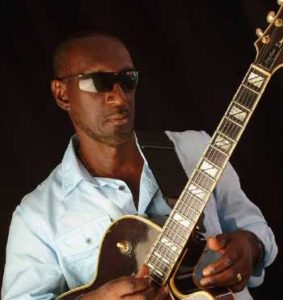Entertainers from the OECS are calling on OECS nationals to help reduce pollution of the marine environment. Ten artistes from the islands have participated in a music video, drawing attention to the alarming level of litter in the Eastern Caribbean ocean space.

The music video forms part of a public education campaign for the Building Resilience in the Eastern Caribbean through Reduction of Marine Letter (ReMLit) Project, currently being implemented by the OECS Commission with the support from the Government of Norway.
The ReMLit Project is implementing a number of priority actions under the Eastern Caribbean Regional Ocean Policy (ECROP), an OECS-wide framework for regional coordination of sustainable development, management and conservation of ocean resources.
With the OECS Commission at the forefront of the agenda to transition OECS Member States to a Blue Economy, the ReMLit Project is enabling this change through enhanced and harmonised policy and legislation related to waste management, educating for behavior change with respect to waste practices, and giving support to implement concrete interventions on the ground to reduce marine litter at the country level. The featured artistes in the music video represent the six OECS Member States particpating in the project.

Ricardo Drue and Claudette Peters of Antigua, Michele Henderson of the Commonwealth of Dominica, Jevaugh “V’ghn” John and Sabrina Francis of Grenada, Teddyson John and Ronald “Boo” Hinkson of Saint Lucia, Rodney Small and Gamal “Skinny Fabulous” Doyle of Saint Vincent and the Grenadines, and Geffen “Woo” Gerrald of Montserrat make up the cast of singers and musicians performing the song “More Than Just Islands” penned by Economist and Poet, Dr. Adrian Augier, and composed and produced by Meriaha St. Louis, both of Saint Lucia.
The music video, launched on April 14, 2021, is one of a number of knowledge tools to be rolled outunder ReMLit’s public awareness and behaviour change component. Anchored by the slogan “Tackling Ocean Pollution, from Turf to Surf,” the campaign seeks to help OECS Member States to understand the integral relationship between land and sea, the impacts of bad on-land practices on marine ecosystems, and the role of policymakers, commercial operators and all categories of marine and coastal resource users, to take and support actions to safeguard these assets, which are essential to the sustained economic future of the OECS.
The OECS marine space ranks among the highest in the Western Hemisphere for endemic marine species. Being approximately 85 times larger than its land space, the OECS marine space supports an extensive array of livelihoods and industries. Up to 30% of the labour force in some Member States earn their living from the sea.













